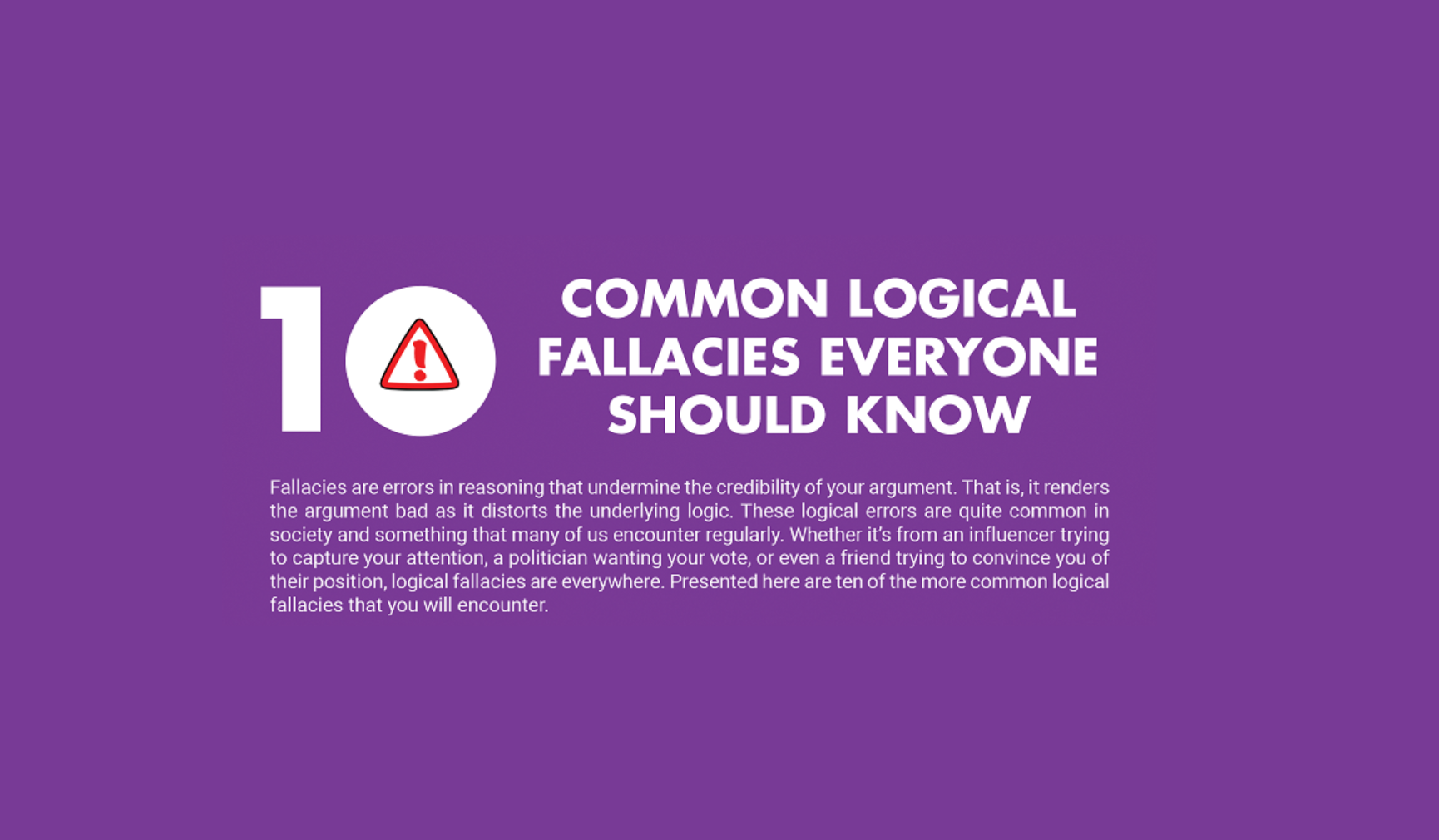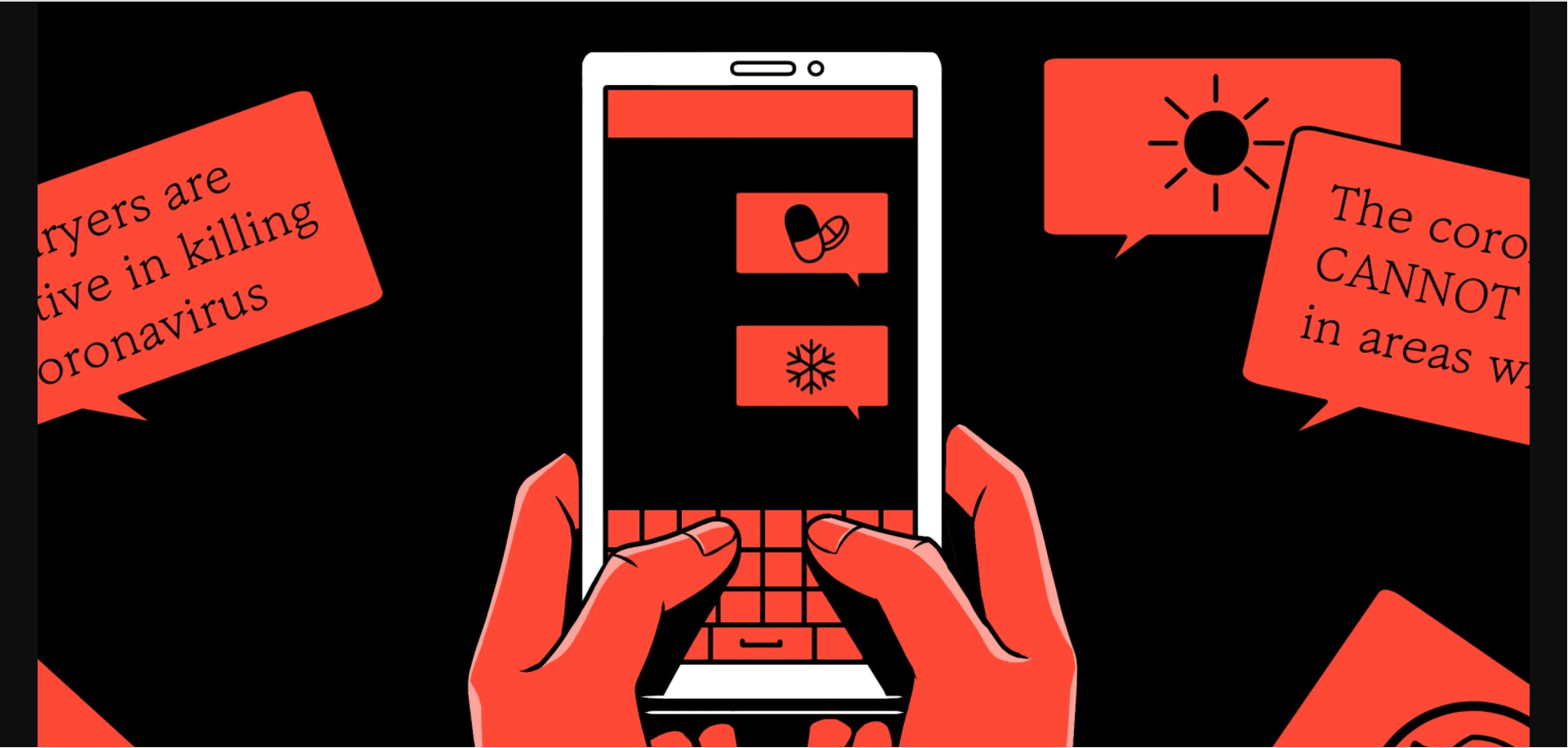Fallacies are errors in reasoning that undermine the credibility of your argument. That is, it renders the argument bad as it distorts the underlying logic. These logical errors are quite common in society and something that many of us encounter regularly. Whether it’s from an influencer trying to capture your attention, a politician wanting your vote, or even a friend trying to convince you of their position, logical fallacies are everywhere. Presented here are ten of the more common logical fallacies that you will encounter.
Read MoreAn informal fallacy where personal experience or a singular example is used instead of compelling evidence. People often gravitate towards using their own experiences or those of people around them as evidence in arguments. It's natural to do so as citing scientific evidence to craft a good argument takes effort and most of us are lazy thinkers and opt for the quicker and easier…
Read MoreVaccinations are arguably the greatest medical technology ever created. From the eradication of smallpox to the prevention of certain types of cancers, the success of vaccines is indisputable. The recent COVID-19 vaccines are no less impressive than their numerous predecessors. The leaders in effectiveness are the dual-dose Moderna and Pfizer vaccines, which achieve about 95% effectiveness after two doses, while the single-dose Johnson & Johnson vaccine has a 72% overall efficacy with an 86% efficacy against severe disease. While no vaccine offers 100% protection, they are all recommended to…
Read MoreAn informal fallacy that occurs when evidence is presented in response to a specific claim that is subsequently dismissed and greater evidence is then demanded. Or, demanding from an opponent that he/she address more points after the initial counter-argument has sufficiently provided evidence against the primary argument. That is, the requirement for a sufficient rebuttal is continually changed after each counter-argument so as to never be able to
Read MoreIt is certainly interesting times that we find ourselves in. Fake news, pervasive science denial, a new conspiracy theory seemingly every week, tens of thousands of unnecessary deaths from the pandemic that could have been easily avoided by acknowledging the recommendations coming from the scientific community, and many more examples. Society is swimming in false information that is literally costing people their lives at this point and driving us apart through polarization [1]. But what can we do? Quite a bit actually…
Read MoreAn informal fallacy where you argue that because event A directly preceded event B, that event A caused event B. That is, because the two events correlate, that this then implies causation. This can also be thought of as a perceived relationship between two things that doesn't necessarily imply that one is the cause of the other. Clearly, this is a flawed position as correlation doesn't always imply causation. However, it is true that…
Read MoreAn informal fallacy where two options or an “either/or” situation is presented when more possibilities exist. This fallacy is ostensibly logical, but, on closer evaluation, it becomes clear that it is indeed sophistry as there exist more than two possibilities than were presented. This type of thinking obfuscates the nuances that accompany most situations in life. That is, in general, life is…
Read MoreA formal fallacy in which it is argued that because a perceived authority figure (or figures) believes a proposition (relevant to their authority) to be true, that proposition must therefore be true. This is also known as….
Read MoreAn informal fallacy where a claim is accepted or rejected based on the source of the evidence rather than on the quality of the evidence. The fallacy shifts focus onto the origin in an attempt to…
Read MoreAn informal fallacy where a realistic [insert something, someone, solution, etc. here] is compared to an idealized, unrealistic alternative. This is done in an attempt to….
Read MoreAn informal fallacy where selected evidence is presented that supports the position of the argument, while contrary evidence is withheld. This is done in an attempt to make the argument more persuasive to an audience. Moreover, the greater the volume or strength of the evidence withheld dictates how….
Read MoreAn informal fallacy where you argue that because something is “natural” it is therefore good, better, ideal, etc. While it is true that there are things in this world that are considered “natural” and also fall into the “good “ category (e.g., clean air), this isn't always the case (e.g., earthquakes). Naturalness itself doesn't automatically imply good or bad….
Read MoreAn informal fallacy where you substitute a person's argument with a distorted, exaggerated, or misrepresented version in order to make it easier to attack. However, this tactic undermines a rational debate as….
Read MoreA type of informal fallacy where there is an ostensible similarity between two things, but, on closer examination, are in fact not equivalent. The two things may share something in common with one another, but….
Read MoreA type of informal fallacy where you attack the person making the argument instead of the argument itself. This can take the form of blatantly attacking someone in the form of name calling or more subtly attacking an individual’s character in an attempt….
Read MoreA type of formal fallacy where a small first event is suggested to lead to another more significant event, which then leads to an even more significant event, and so on, until some ultimate, extreme event is reached. The connections between each significant event are likely related, but….
Read More















